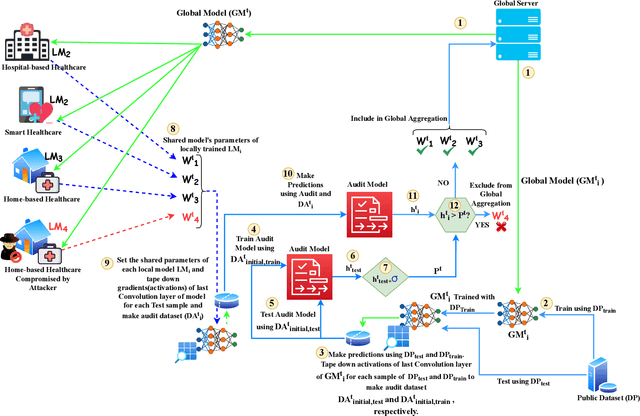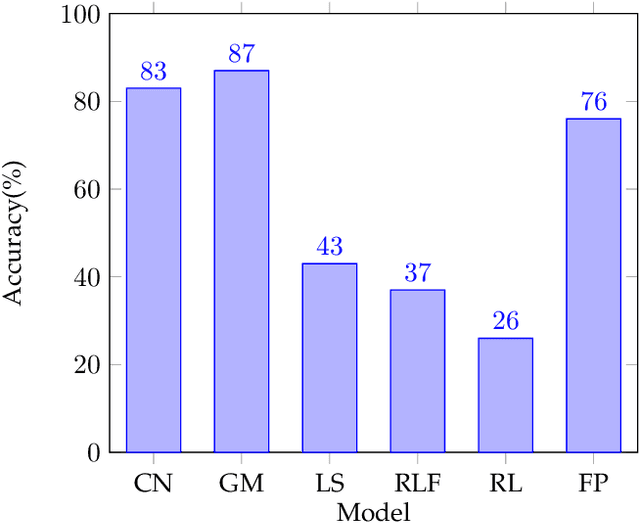Detection of Poisoning Attacks with Anomaly Detection in Federated Learning for Healthcare Applications: A Machine Learning Approach
Paper and Code
Jul 18, 2022



The application of Federated Learning (FL) is steadily increasing, especially in privacy-aware applications, such as healthcare. However, its applications have been limited by security concerns due to various adversarial attacks, such as poisoning attacks (model and data poisoning). Such attacks attempt to poison the local models and data to manipulate the global models in order to obtain undue benefits and malicious use. Traditional methods of data auditing to mitigate poisoning attacks find their limited applications in FL because the edge devices never share their raw data directly due to privacy concerns, and are globally distributed with no insight into their training data. Thereafter, it is challenging to develop appropriate strategies to address such attacks and minimize their impact on the global model in federated learning. In order to address such challenges in FL, we proposed a novel framework to detect poisoning attacks using deep neural networks and support vector machines, in the form of anomaly without acquiring any direct access or information about the underlying training data of local edge devices. We illustrate and evaluate the proposed framework using different state of art poisoning attacks for two different healthcare applications: Electrocardiograph classification and human activity recognition. Our experimental analysis shows that the proposed method can efficiently detect poisoning attacks and can remove the identified poisoned updated from the global aggregation. Thereafter can increase the performance of the federated global.
 Add to Chrome
Add to Chrome Add to Firefox
Add to Firefox Add to Edge
Add to Edge